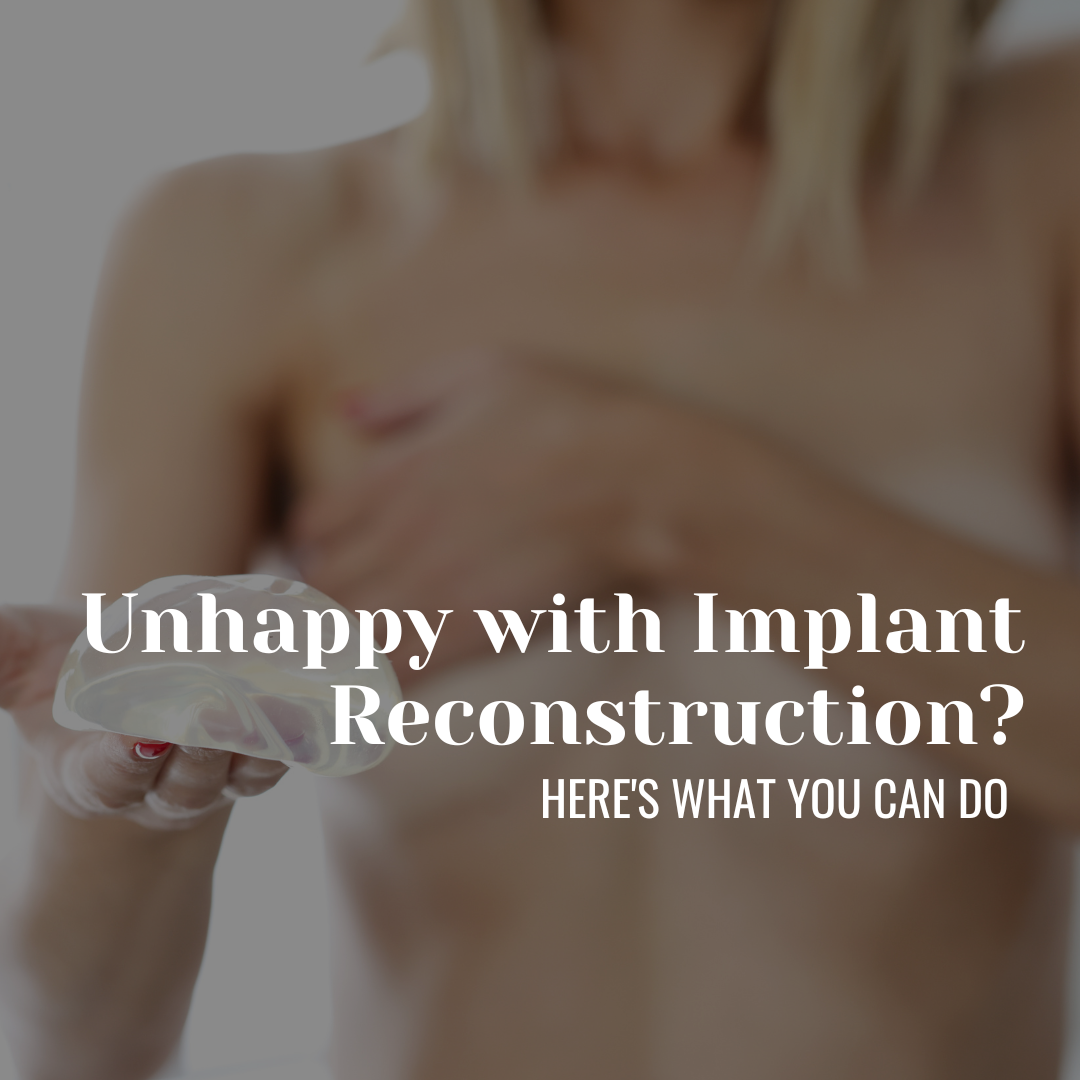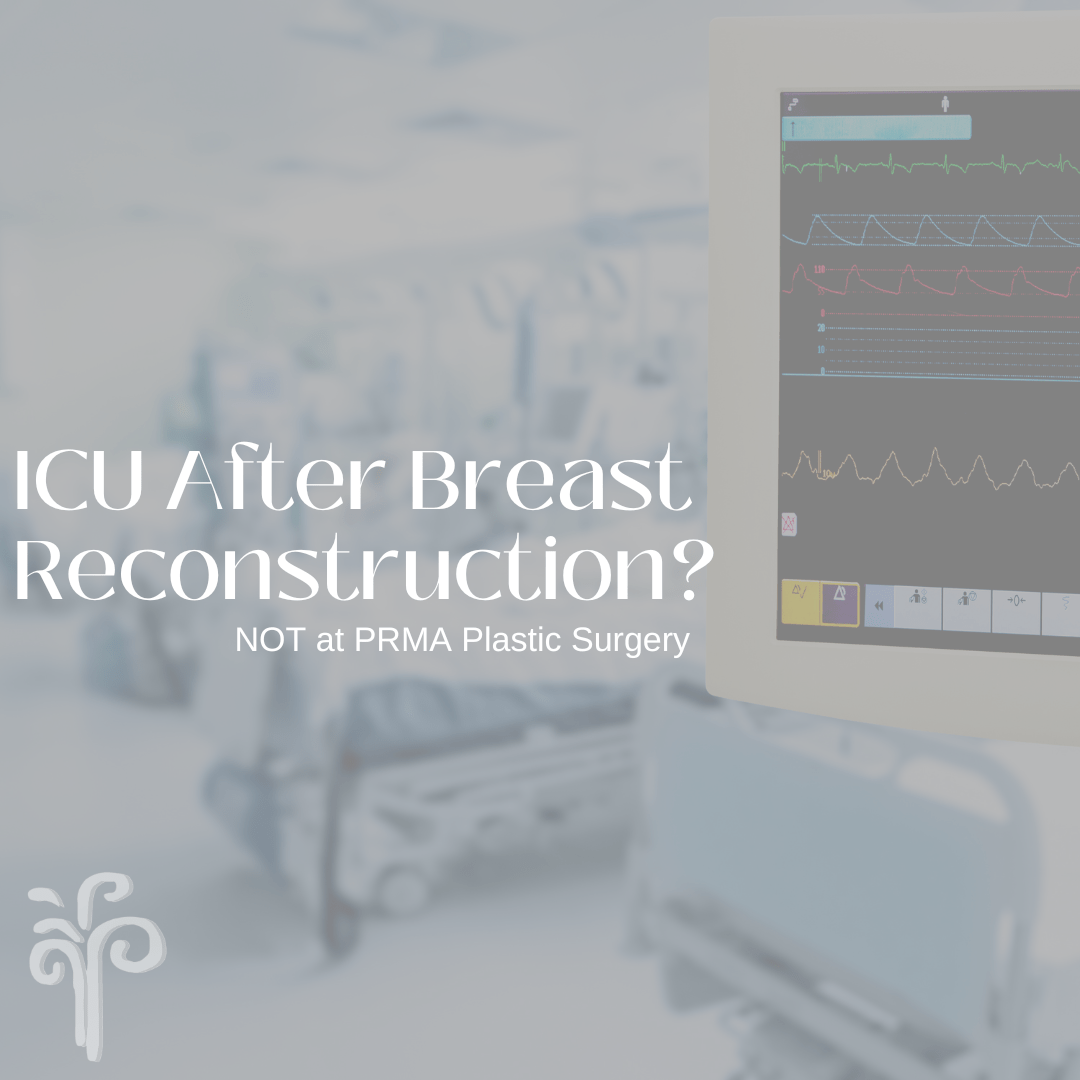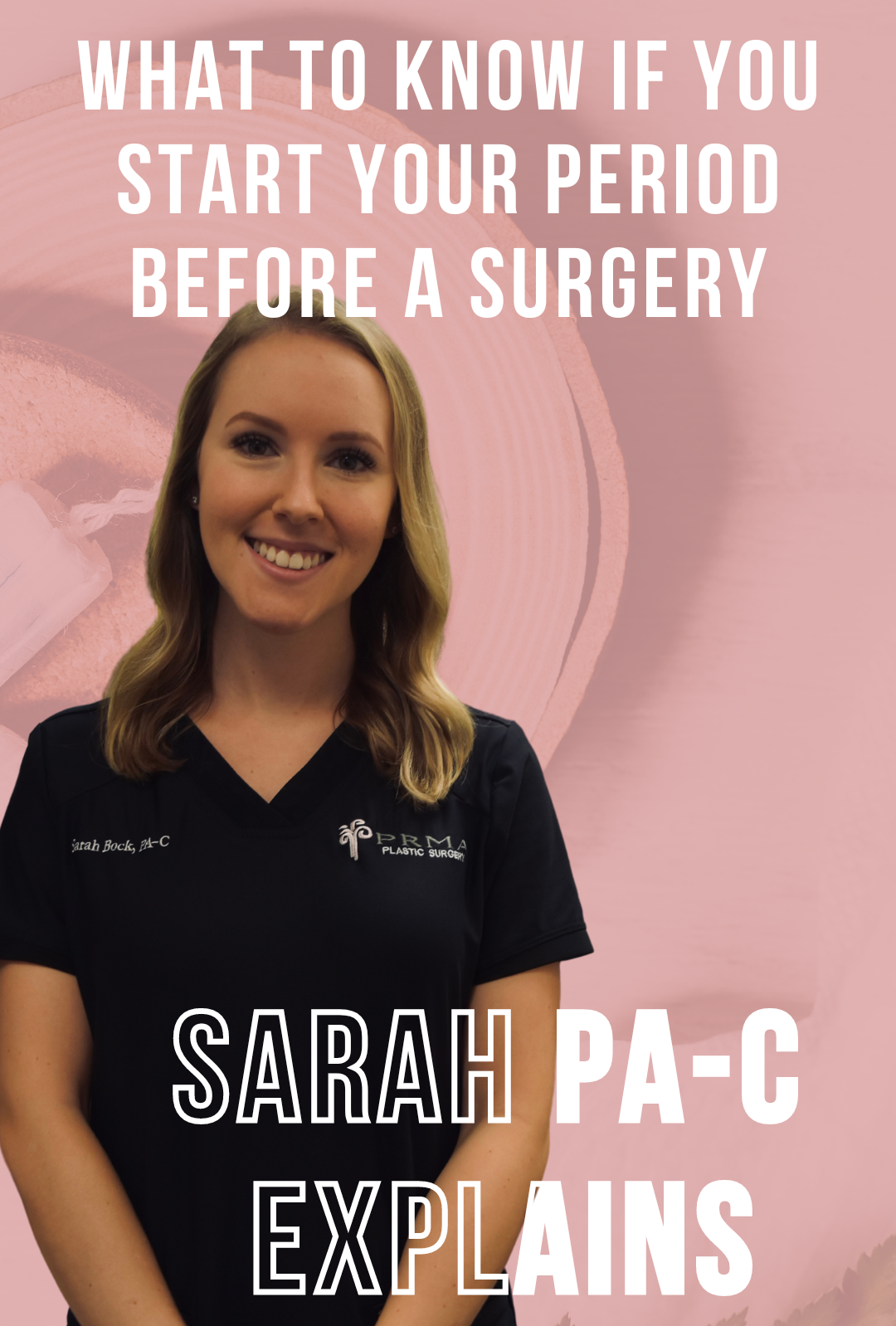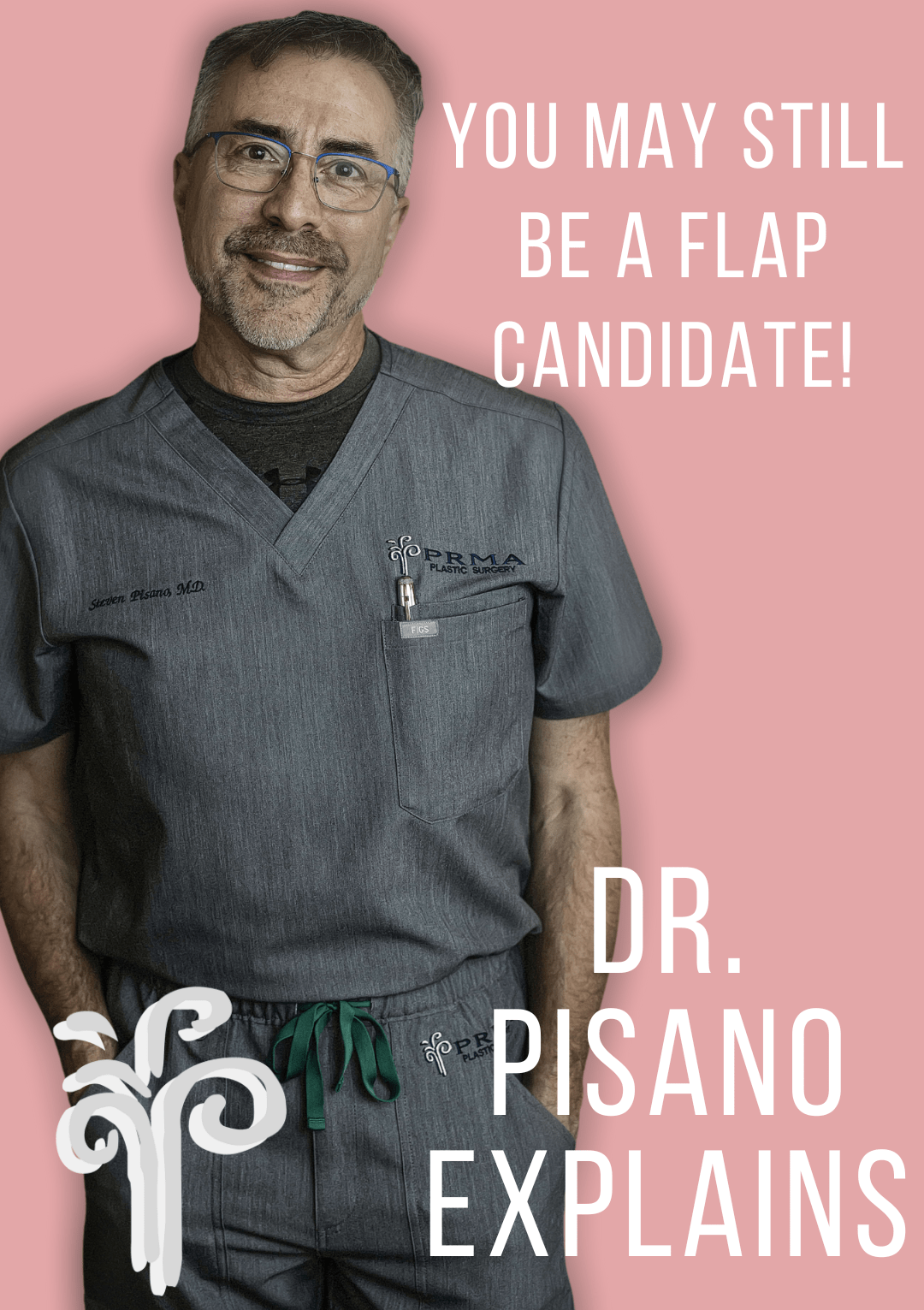Is breast reconstruction using your own tissue safe?
A study published in the November issue of the International Journal of Radiation Oncology-Biology-Physics examined the effect of radiation therapy on different methods of immediate breast reconstruction surgery.
For breast cancer patients who receive radiation therapy after a mastectomy and immediate breast reconstruction, autologous tissue reconstruction (ie reconstruction using their own tissue or “flap”) provides fewer long-term complications and superior cosmetic results than breast reconstruction with a tissue expander and subsequent breast implant.
Many women choose to undergo breast reconstruction surgery at the same time as their mastectomy procedure (under the same anesthetic), known as “immediate reconstruction”. This avoids many of the psycho-social issues women face when dealing with a flat chest after mastectomy alone. However, frequently radiation can negatively affect the outcome of reconstruction and increase the risk of long-term complications.
Radiation therapy is increasingly becoming used in high-risk breast cancer patients after mastectomy in an attempt to decrease the risk of local cancer recurrence.
Researchers at the Department of Radiation Oncology at Long Island Radiation Therapy in Garden City, N.Y., the Department of Surgery at Long Island Jewish Hospital in New Hyde Park, N.Y., the Department of Surgery at North Shore University Hospital in Manhasset, N.Y., and the Department of Surgery at Winthrop University Hospital in Mineola, N.Y., looked at whether the type of reconstruction performed in women receiving radiation after a mastectomy had an impact on their long-term outcomes.
Two general types of breast reconstruction are available for patients facing mastectomy for breast cancer: autologous tissue reconstruction (flap) utilizing the patient’s own tissue transferred to the chest to recreate the breast(s); and tissue expander/implant reconstruction which involves placement of an inflatable tissue expander (temporary saline implant) and exchange for a permanent implant (saline or silicone) at a separate procedure later on.
This study involved the largest reported series of patients who sequentially underwent mastectomy, immediate reconstruction and postmastectomy radiation therapy. Ninety-two patients were observed for a period of 38 months following breast reconstruction and radiation therapy.
Researchers found that flap breast reconstruction is better tolerated by breast cancer patients because it is associated with fewer long-term complications and better cosmetic results than tissue expander/implant reconstruction.
None of the 23 patients reconstructed with their own tissue required further surgery while 33 % of tissue expander/implant patients needed surgery to correct a problem with their reconstruction. Eighty-three percent of autologous reconstruction patients reported acceptable cosmetic results, as opposed to only 54 % of implant patients.
“This study is useful for patients who are candidates for either [method of reconstruction] and are making a decision with regards to reconstruction technique,” Jigna Jhaveri, M.D., lead author of the study and a radiation oncologist at Advanced Radiation Centers of New York in Hauppauge, N.Y., said. “Our study provides evidence that patients who undergo autologous tissue reconstruction and radiation therapy have fewer long term complications and better cosmetic outcomes than those who undergo tissue expander/implant reconstruction and radiation therapy.”
This study confirms that breast reconstruction using the patient’s own tissue is safer than tissue expander/implant reconstruction in women facing radiation therapy after mastectomy.
Author: Dr. Minas Chrysopoulo
For breast cancer patients who receive radiation therapy after a mastectomy and immediate breast reconstruction, autologous tissue reconstruction (ie reconstruction using their own tissue or “flap”) provides fewer long-term complications and superior cosmetic results than breast reconstruction with a tissue expander and subsequent breast implant.
Leave Comment
Sign Up for Our Monthly Newsletter
Continue Reading

Understanding DIEP Flap Reconstruction: FAQs, Recovery, and Best Practices
Understanding DIEP Flap Reconstruction: FAQs, Recovery, and Best Practices April 18, 2023 Share on Facebook Twitter Linkedin What is DIEP flap reconstruction surgery? DIEP flap reconstruction surgery, or Deep Inferior Epigastric Perforator flap surgery, is a type of breast reconstruction surgery that uses tissue from the lower abdomen to create a new breast after a […]

Unhappy with Your Implant Reconstruction Results? Here’s What You Can Do
Unhappy with Your Implants? April 05, 2023 Share on Facebook Twitter Linkedin Breast Reconstruction is a transformative surgery that helps many women feel whole again after battling breast cancer. While the procedure can be a significant step in your healing journey, it’s crucial to know what to do if you’re unhappy with your results.Be Honest […]

Enhanced Recovery After Surgery (ERAS): The Future of Perioperative Care at PRMA Plastic Surgery
Enhanced Recovery After Surgery (ERAS): The Future of Perioperative Care at PRMA Plastic Surgery March 31, 2023 Share on Facebook Twitter Linkedin At PRMA Plastic Surgery, we are committed to providing the best possible care for our patients. That’s why we have adopted the Enhanced Recovery After Surgery (ERAS) approach to perioperative care. ERAS is […]

Preventative Breast Mastectomy: Taking Control of Your Breast Cancer Risk
Preventative Breast Mastectomy: Taking Control of Your Breast Cancer Risk March 23, 2023 Share on Facebook Twitter Linkedin Considering a Preventative Mastectomy?Whether you have a BRCA gene mutation or a family history of breast cancer, your doctor might have suggested a prophylactic mastectomy to lower your risk.This procedure, also known as a preventative mastectomy, removes […]

No ICU Stay Needed: PRMA’s Advanced Surgical Techniques and Recovery Protocols
No ICU Stay Needed: PRMA’s Advanced Surgical Techniques and Recovery Protocols March 22, 2023 Share on Facebook Twitter Linkedin DIEP (Deep Inferior Epigastric Perforator) flap surgery is a popular breast reconstruction surgery that uses a patient’s own abdominal tissue to reconstruct the breast after a mastectomy. This procedure is becoming increasingly popular due to its […]

TruSense®
TruSense® March 15, 2023 Share on Facebook Twitter Linkedin Breast cancer is a devastating diagnosis that affects millions of women every year. For many women, a mastectomy is the recommended course of action to remove the cancerous tissue. While a mastectomy can be lifesaving, it often comes with the undesired side effect of lost sensation […]

What to Know if You Start Your Period Before a Surgery: Expert Advice for Women
What to Know if You Start Your Period Before a Surgery: Expert Advice for Women March 10, 2023 Share on Facebook Twitter Linkedin What Happens if You Start Your Period Before Surgery? Starting your period before a surgery can be a cause of concern for many women. It is important to understand that surgery puts […]

Too Thin For DIEP Flap? You May Have Other Flap Options!
Too Thin For DIEP Flap? You May Still Be A Flap Candidate! March 03, 2023 Share on Facebook Twitter Linkedin What happens if you are too thin for DIEP flap surgery? At PRMA we have successfully performed DIEP flap reconstructions on women with BMI’s of 20 and even less. For those who are deemed “Too […]

How Long Will I Be Out Of Work After DIEP Flap Breast Reconstruction Surgery?
How Long Will I Be Out Of Work After DIEP Flap Breast Reconstruction? January 31, 2023 Share on Facebook Twitter Linkedin DIEP Flap Breast Reconstruction is a major surgery that requires planning, support, and 4-6 weeks of recovery time. The exact length of time off work after a DIEP flap will depend on several factors, […]

This Simple Coding Change Could Kill Access to DIEP Flap Breast Reconstruction for Thousands of Americans
This Simple Coding Change Could Kill Access to DIEP Flap Breast Reconstruction for Thousands of Americans January 25, 2023 Share on Facebook Twitter Linkedin Changes in medical coding by the Centers for Medicare and Medicaid Services (CMS) will severely limit the breast reconstruction options women have available through insurance, potentially making procedures like the DIEP […]

No Comments